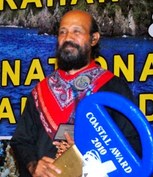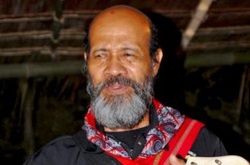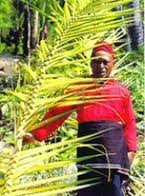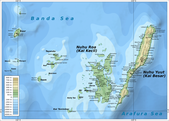ECOLOGY & SUSTAINABLE DEVELOPMENT IN THE MOLUCCAS
|
Maurice Strong on the impending global environmental catastrophe...
"If we don't change, our species will not survive... Frankly, we may get to the point where the only way of saving the world will be for industrial civilization to collapse." -Maurice Strong quoted in the September 1, 1997 edition of National Review magazine. Maurice Strong is one of the most influential men in the world. He is a senior advisor to the Secretary-General of the United Nations, organizer of the Rio Earth Summit and former senior advisor to the President of the World Bank. When media mogul Ted Turner wanted to give the United Nations $1,000,000,000 to work on finding solutions for international conflict and environmental decline, he first consulted Strong. In the past thirty years, no single person has done more for the environment movement - and provided a platform for change - than Strong. With the publication of Where On Earth Are We Going? (TEXERE, April 23, 2001, 456 pages, clothbound, $27.95), Strong reveals his pivotal role in the political and environmental activist movements, and talks plainly about what remains to be done. And there remains much to be done. Strong provides a historical context by which to judge our progress in the struggle to save the planet from environmental degradation, and lends insight as to where we are heading. Eliza Kissya: "Today, people talk about sustainable development. But hundreds of years ago, our ancestors created and enforced sasi, laws which are still adhered to in our community". Eliza Kissya: Preserving the 'sasi' tradition against the odds
|
The power of ‘sasi’: A sustainable taboo
How sticks, signs and crucifixes help manage forests in Maluku Forests News / 23 JAN 2018 UU Masyarakat Adat: Sebuah Pilihan Merdesa Institute | Agustus 15, 2018 Bagi Masyarakat Adat, Kehilangan Lahan Sama Saja Kehilangan Nyawa WRI | 04 Juni 2018 Pemerintah didesak bekerja lebih cepat bagi masyarakat adat BBC | 17 Maret 2017 Local Knowledge Conference: Temuan dan Tantangan Penerapan Sasi Laut di Maluku Pattiro | April 14, 2016 Budaya 'Sasi' di Maluku Jaga Perikanan Potensi Republika | Kamis 04 December 2014 Puluhan Warga di Maluku Lakukan Sasi Adat Liputan6 | 17 Mei 2010 Eliza Kissya wrote a book --
Sasi Aman Harukui (The Sasi of Haruku) -- in which he describes the sasi traditions and the kewang role to the public. Radja J.P. Rahail wrote a book about the customay law of Kei (Hukum Adat Kei ) ▼
| ||||||



